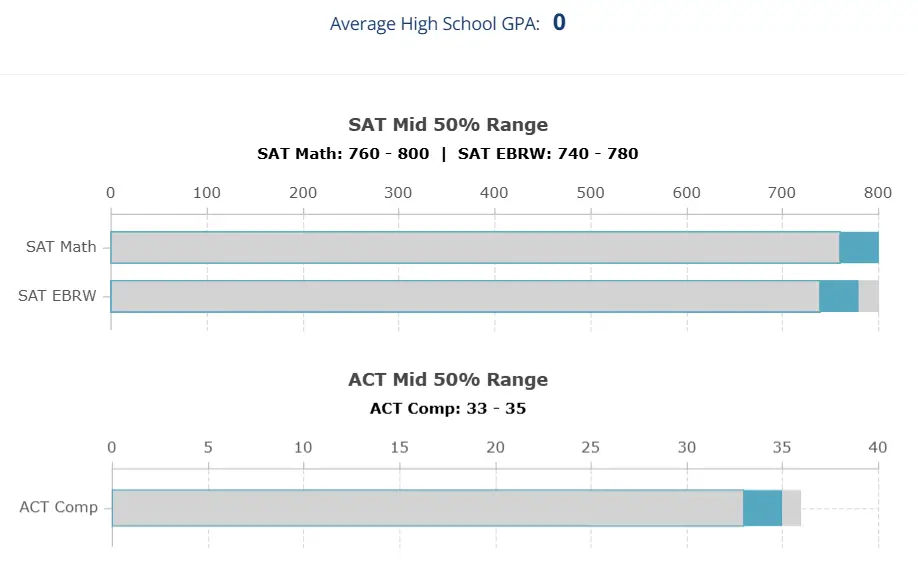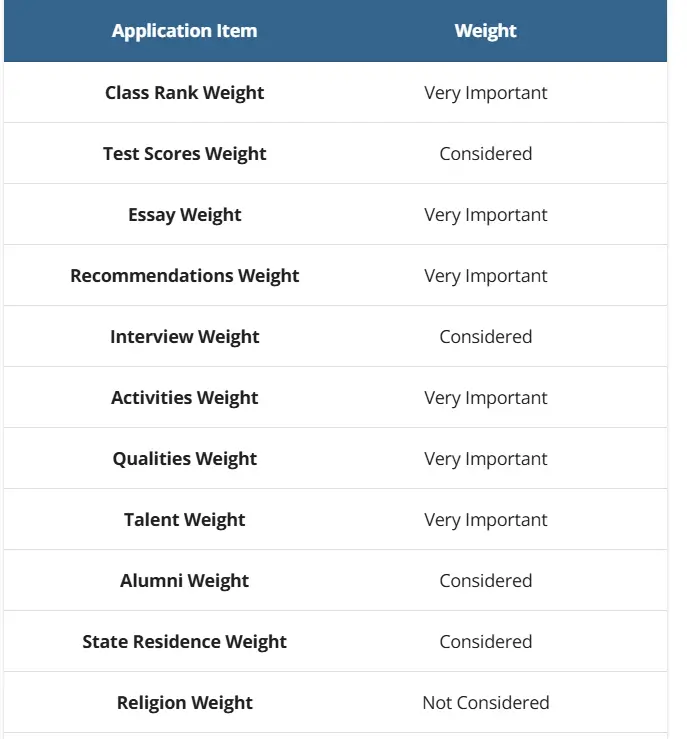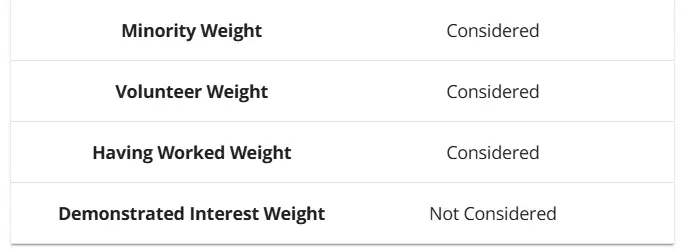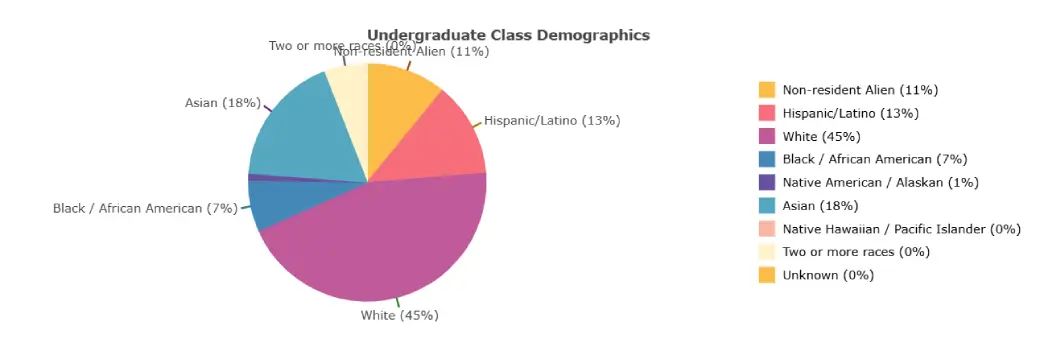Walking onto Yale’s campus feels like stepping into history. Gothic buildings, cobblestone walkways, and a buzzing student atmosphere make it clear that this place is special. Thousands of ambitious students send in applications every year, hoping to secure a spot. Only a fraction get that coveted acceptance letter.
How do you make sure your application grabs attention? Understanding what Yale values, crafting a compelling story, and hitting deadlines on time will put you ahead.
Yale’s Legacy and Why It Still Reigns Supreme
Founded over 300 years ago, this Ivy League powerhouse has built a reputation that commands respect. What makes it unique? A strong undergraduate focus, small class sizes, and professors who don’t just research but truly teach.
Step onto campus, and you’ll feel the energy. Students aren’t just academic elites; they love learning and bring a contagious enthusiasm to everything they do. The environment is rigorous but not cutthroat, competitive yet deeply collaborative.
Mark Your Calendar: Yale’s Key Deadlines
Procrastination isn’t an option when applying to Yale. Two application tracks exist, and each comes with its own timeline:
- Single-Choice Early Action (SCEA): Apply by November 1 and expect an answer in mid-December. Remember that this option means you can’t apply early anywhere else (except for a few public schools).
- Regular Decision: The final deadline is January 2, with results arriving by April 1.
Both application paths require submitting materials through the Common Application, Coalition Application, or QuestBridge. Pick one and stick with it.
Understanding Yale’s deadlines is just the beginning. Applicants must ensure that every submission component meets the university’s expectations. Each element plays a crucial role in the final decision, from test scores to personal statements.
How to Build an Application That Gets Noticed
Thousands of applications flood Yale’s admissions office each cycle. What separates the admitted students from the rest? A few key factors carry the most weight:
Academic Excellence That Goes Beyond Grades
Yale seeks individuals who challenge themselves, embrace intellectual rigor, and push beyond the basics. Simply earning high marks isn’t enough. What truly matters is how you engage with learning, tackle complex material, and grow as a thinker. High achievers usually have:
- A near perfect GPA (often close to 4.0).
- A course load packed with AP, IB, or advanced classes.
- Consistent improvement, proving intellectual curiosity.
Test Scores: No Longer Optional
Starting in 2024, Yale requires SAT or ACT scores. Though no strict cutoff exists, competitive applicants typically land in these ranges:
- SAT: 1470-1560 (average: 1540)
- ACT: 33-35 (average: 34)
While Yale doesn’t enforce strict minimums, competitive applicants typically achieve high SAT and ACT scores. But how do these compare with other top-tier institutions? If you’re curious about score expectations across elite schools, explore this list of SAT/ACT requirements for the top 100 US universities to see where you stand.
 Letters That Prove More Than Just Good Grades
Letters That Prove More Than Just Good Grades
Numbers and transcripts only tell part of the story. Admissions officers want to understand who you are beyond your GPA and test scores. Letters of recommendation provide insight into your personality, work ethic, and potential contributions to the Yale community. You’ll need three recommendations:
- Two from teachers who know you beyond assignments.
- One from a counselor who understands your character.
Choosing recommenders wisely can make or break an application. Strong recommendation letters require more than just good grades. They need to reflect your character, work ethic, and potential contributions. But crafting a well-rounded application often benefits from expert guidance. Many students turn to college admissions counselors to help them navigate the complexities of applications. If you’re considering professional support, here’s what to look for when hiring a college counselor to ensure you get the best advice.
Essays That Tell a Story
Nothing holds more weight than a well-crafted personal statement and supplemental essays. A great essay isn’t a list of achievements—it’s a window into your personality, values, and potential contributions to Yale’s community.
Admissions officers read thousands of essays. The best ones feel like an engaging conversation, revealing something unique. Show, don’t tell. Instead of writing about being passionate, describe a moment that proves it.
Academic Expectations
Yale doesn’t have strict GPA requirements, but most successful applicants typically have a GPA close to 4.0, often graduating in the top 10% of their class. They also take on a challenging course load—think AP or IB classes if they’re available at your school. Basically, keep pushing yourself academically!
Interviews are optional but highly recommended! They’re a great way to show your interest in Yale and share more about yourself.
For International Students: If you’re coming from outside the U.S., you’ll follow the same application process. However, you might need to prove your English skills with tests like TOEFL or IELTS if English isn’t your first language. Aim for scores like TOEFL: at least 106, or IELTS: a score of 7 or higher.


Yale’s Unique Academic Environment
No rigid core curriculum limits exploration. Students enjoy the flexibility of blending humanities, sciences, and social sciences, shaping an education that fits their goals.
One standout feature is the two-week “shopping period.” Instead of being locked into courses from day one, students test different classes before making final decisions.
Yale offers an early start for research-driven minds. Around 95% of science and engineering majors participate in faculty-led projects within their first year.
Inside Yale’s Iconic Gates
Academically, Yale is rigorous but rewarding. Earning a Yale degree requires completing 36 courses—more than most schools—but the environment is collaborative rather than cutthroat. Students enjoy a two-week “shopping period” to try out classes before committing, and around 70% take advantage of Yale’s affordable study-abroad programs to explore the world while earning their degree.
Research and Unique Opportunities
Yale is a paradise for research-driven minds, especially in the sciences. By the end of their first year, about 95% of science and engineering majors are already collaborating on faculty-led research projects. The economics department is a standout, but Yale also boasts exceptional programs in life sciences, history, political science, and English. Class sizes are intentionally small, with 73% of upper-level seminars having fewer than 20 students, creating an intimate learning environment where students can truly engage with their professors. Many students describe their classes as feeling more like performances than lectures, thanks to the passion and expertise of Yale’s faculty.
Student Life and Community
Yale’s residential colleges are the heart of student life, offering a built-in community from day one. Each college feels like its own little world, complete with cozy dining halls, private study spaces, gyms, and even photography darkrooms. Students bond over events like teas with famous guests, intramural sports, and quirky traditions like the annual snowball fight and the legendary Halloween Show. The social scene is laid-back, with small but welcoming Greek life, a cappella groups, improv comedy troupes, and countless student-run clubs. Beyond campus, New Haven is a hidden gem, blending urban excitement with small-town charm. Students explore local art museums, grab legendary slices at Pepe’s Pizza, and catch shows at nearby theaters. Community involvement is also a big part of life at Yale, with about 60% of students participating in volunteer work.
Athletics and Traditions
Yale’s athletic spirit is alive and well, with 34 varsity teams, including powerhouse squads in men’s lacrosse, basketball, and crew. The annual Yale-Harvard football game, affectionately known as “The Game,” is a massive event that brings the entire campus together. For those who prefer a more casual approach to sports, intramural teams and friendly competitions between residential colleges offer plenty of opportunities to stay active and have fun.
A Supportive and Inclusive Community
Yale’s student body is diverse and inclusive, with 93% of undergraduates coming from outside Connecticut and 11% from outside the U.S. The campus leans left politically, and activism is a big part of the culture, with students unafraid to stand up for their beliefs. Yale’s commitment to accessibility is evident in its need-blind admissions policy and generous financial aid. Families earning under $75,000 a year pay no tuition, and Yale ensures that loans are not part of the financial aid package. This support allows students to focus on their education and personal growth without financial stress.

A Place to Thrive
Yale’s campus is not just steeped in history—it’s a place where traditions run deep, but students are encouraged to carve out their own unique paths. Whether diving into groundbreaking research, exploring new interests, or building lifelong friendships, Yale offers an unforgettable experience that blends academic rigor with a vibrant, supportive community.
Life Inside Yale’s Residential Colleges
Think of it as Hogwarts, but real. Each student belongs to one of fourteen residential colleges, complete with the following:
- Cozy dining halls
- Private study spaces
- Late-night snack bars
More than just dorms, these colleges create built-in communities. Events, traditions, and even inter-college competitions make student life exciting.
New Haven: More Than Just Yale’s Backyard
Beyond campus, New Haven offers food, art, and entertainment. Students rave about Pepe’s Pizza, weekend markets, and world-class museums. The city blends a college-town vibe with just enough urban energy to keep things interesting.
Community involvement is huge here. Over 60% of students volunteer, helping make an impact beyond campus walls.
Financial Aid: Breaking Down Barriers
Attending Yale isn’t reserved for the wealthy. Their need-blind admissions policy ensures finances don’t affect decisions. Families making under $75,000 yearly won’t pay a dime for tuition.

The Secret to Standing Out in a Competitive Pool
With an admissions rate below 7%, Yale is selective. But those who get in aren’t just perfect students. They bring:
Authenticity: Applicants who present themselves honestly, not as what they think Yale wants.
Passion: A deep interest in something—whether it’s activism, research, or the arts
Engagement: A history of making an impact in their communities, big or small.
Those who see Yale as more than just a name on a diploma thrive here. If that sounds like you, this Ivy League gem might be your perfect match.
Applying to Yale is no small feat, but the right strategy can help you stand out. If you need personalized guidance to refine your essays, strategize your application, or navigate financial aid, our team is here to help. Let’s connect and discuss how to maximize your chances of acceptance.





